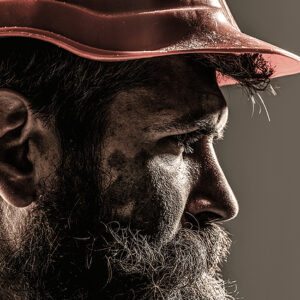In the moments just before his execution, as the final preparations were being made, Leon Czołgosz, the man who had assassinated President William McKinley, explained himself: “I killed the president because he was the enemy of the good people—the good working people. I am not sorry for my crime. I am sorry I could not see my father.”
However, when people, very much including said “working people,” learned of what Czołgosz had done, they didn’t seem terribly appreciative. A mob tried to breach his prison cell that very evening to lynch him in retaliation for shooting McKinley, and even his fellow anarchists took pains to distance themselves from what he had done. So, despite Czołgosz’s high-minded rhetoric just before the switch was flipped on the electric chair, the alleged beneficiaries of his martyrdom seemed anything but impressed.
Seven decades later, the radical, militant organization the Weather Underground employed similar rhetoric to justify some of its acts of violence, including even the 1974 bombing of Gulf Tower in Pittsburgh. In the minds of the organizers, their activities somehow served the interests of, you guessed it, “working people.” Aside from this claim being, on its face, preposterous, in case there was any doubt, “working people” tended to make clear their disapproval. As the historian Dan Berger notes, “…white working-class youths were more alienated than organized by Weather’s spectacles.” However, for anyone familiar with George Orwell’s early work, particularly The Road to Wigan Pier, this would not be surprising; those whose interests the activists of last century claimed to be championing often wanted little to do with their self-appointed spokespeople—with the spokespeople themselves, or with their ideas.
Yet today, podcasters, politicians, and activists groups alike appear not to have learned the lessons of the past. Although they are less likely than Czołgosz or the Weather Underground to demand violence, they still couch their preferred positions in claims that they serve the interests of “working people.” They even named one of their parties the Working Families Party. Despite their professions of support for these people, which we might take to mean those who work with their hands, they seem quite disinterested in what these people might actually believe, particularly if their preferences run afoul of their prized policy commitments, from expanding government-run healthcare to desiring an end to wealth inequality.
Before long, it begins to appear that the entire conversation about “working people” amounts to something of an artifice, much like other terms caressley slung around in our contemporary politics, such as “the American people.” Who is a “working person,” anyway? Surely, doctors, teachers, and airline pilots all work, at least in the traditional sense of the term. They report to a place of employment, perform services, and are compensated for them. Yet, they seem not to meet the political definition of the term.
Just the same, by virtue of a person being a steamfitter or a plumber, why is he automatically expected to subscribe to a certain set of political beliefs? Why do our politicians feel the need constantly to claim to speak on their behalf, much like they have done for Latino voters, black voters, or any other segment of the population singled out in our political discourse’s constant effort to manufacture division?
More than anything though, in the weeks to come, as our politicians tell us that “working people” demand we pass the infrastructure bill, abolish the filibuster, or do any number of other things, it might be worth recalling that it’s a term abused time and again historically—and a meaningless one at that.

